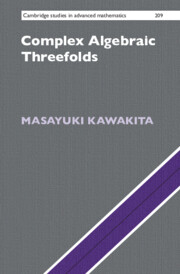1 - The Minimal Model Program
Published online by Cambridge University Press: 29 September 2023
Summary
This chapter outlines the general theory of the minimal model program. The program outputs a representative of each birational class which is minimal with respect to the numerical class of the canonical divisor. It grew out of the surface theory with allowing mild singularities. For a given variety, it produces a minimal model or a Mori fibre space after finitely many birational transformations which are divisorial contractions and flips. The program is formulated in the logarithmic framework where we treat a pair consisting of a variety and a divisor. It functions subject to the existence and termination of flips. Hacon and McKernan with Birkar and Cascini proved the existence of flips in an arbitrary dimension. The termination of threefold flips follows from the decrease in the number of divisors with small log discrepancy. Shokurov reduced the termination in an arbitrary dimension to certain conjectural properties of the minimal log discrepancy. It is also important to analyse the representative output by the program. For a minimal model, we expect the abundance which claims the freedom of the linear system of a multiple of the canonical divisor.
Keywords
- Type
- Chapter
- Information
- Complex Algebraic Threefolds , pp. 1 - 58Publisher: Cambridge University PressPrint publication year: 2023



